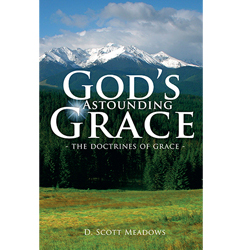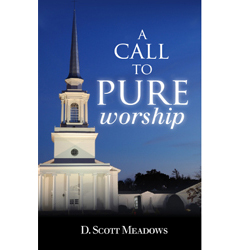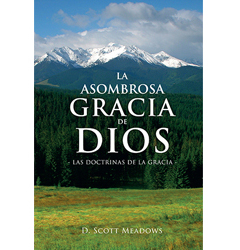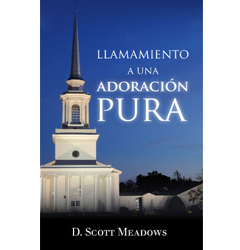

Christians, Be Vigilant!
D. Scott Meadows
Ye therefore, beloved, seeing ye know these things before, beware
lest ye also, being led away with the error of the wicked, fall from
your own steadfastness (2 Pet. 3:17).
Christians, be vigilant! This charge could sum up the entirety of 2 Peter, especially this, its next to last verse. “Someone who is vigilant gives careful attention to a particular problem or situation and concentrates on noticing any danger or trouble that there might be” (CED). Peter fosters vigilance in his readers four ways in 2 Peter 3.17. He alerts them to a spiritual threat, to its special danger to them, to their need for precaution, and to a couple encouragements for their ultimate salvation.
1. Threat: The Error of the Wicked
“The error of the wicked” is a reality in every generation. In English, “error” can mean an innocent mistake like being off by a penny in your checkbook. We know in this place it is sinister and evil because it is associated with people who are truly “wicked” or lawless. The term refers to people who break legal restrictions to fulfill their own desires (LBSL) and therefore are unprincipled, unseemly, disgraceful (BDAG). These are guilty of “wandering from the path of truth into error, delusion, deceit, and deception” (BDAG). The original Greek term for error is behind the English word “planet,” that is, a “wandering star,” as “ordinary stars” keep to fixed positions (cf. Jude 13). Sometimes these wicked wanderers were even once counted among the saints (2 Pet 2.1, 2). They are sometimes “among you,” and “they secretly shall bring in damnable heresies” (factions, sects, untrue doctrines), with no concern for the unity of Christ’s church. These same people who are a threat to Christians “walk after the flesh in the lust of uncleanness, and despise government” or “authority.” “Presumptuous are they, selfwilled, they are not afraid to speak evil of dignities,” bringing “railing accusation against them” (2 Pet 2.10, 11).
While many people around us are untethered to God’s immutable Son Jesus Christ (2 Pet 1.19) and the unchanging Scriptures (Psalm 119.10)—the Word Incarnate and the Word written—we must keep our eyes on Christ and Scripture (mainly teaching us what we ought to believe concerning God and what duty He requires of us, TBC #6) to overcome drift and spiritual disorientation. That is the danger of which Peter warns us.
2. Danger: Your Being Led Away and Falling from Your Own Steadfastness
“Lest” is a word of caution against a potential danger. It is used “with the intention of preventing” (COED). This danger is described in two ways.
First, there is the potential danger that you believers could be “led away with the error of the wicked.” You could suffer a degree of doctrinal and moral confusion, where error starts to seem like truth and wrong begins to seem right, and may even seem to be your solemn duty. Jesus foretold a day when wicked people, full of hatred for Christians, would put them out of the synagogues, and that whoever kills them will think that he serves God (John 16.2). When he was Saul the Pharisee, Paul was like that.
“I verily thought with myself, that I ought to do many things contrary to the name of Jesus of Nazareth” (Acts 26.9; 2 Tim 3.13). A sense of certainty that one is right and actually being right are two very different things! The image Peter uses is of wicked false teachers, ringleaders actually, alluring others within the church to follow them out of the church, contrary to the doctrine and moral life they had learned (cf. 1 Jn 2.19).
Second, the same potential danger is described another way as “falling from your own stedfastness.” The word “fall” in the original means “to change for the worse from a favorable condition,” figuratively, to lose something valuable (BDAG). Here, the treasure is “one’s own stability,” that quality and spiritual blessing of “steadfastness,” “a state of security, safe position” (BDAG). It is to move toward apostasy. While true believers “can neither totally nor finally fall from the state of grace, but shall certainly persevere therein to the end, and be eternally saved,” “they may, through the temptation of Satan and of the world, the prevalence of corruption remaining in them, and the neglect of means of their preservation, fall into grievous sins, and for a time continue therein” (2LCF XVII.1, 3). The danger of being thus “led away” and “falling from your own steadfastness” is a real danger to be avoided like the plague.
3. Precaution: Be on Guard
How are believers kept safe? By taking heed to Peter’s warning, “Beware!” Be cautious and alert to the danger. “Be on one’s guard against it, look out for it, and avoid it” (BDAG). In fencing, “en garde” means take defensive positions right before the beginning of the contest. This is Peter’s “en garde” against a more serious danger. The same basic word of warning is used in Genesis 31.29 LXX where God threateningly forbids Laban from doing any harm to the beloved Jacob and his family: “Take heed to thyself that thou speak not evil words to Jacob.” In other words, you had better not do it or you will suffer for it and regret it.
We should feel absolute abhorrence and great dread about the potential that we could be so led away and fall from our steadfastness. That would be worse than any physical suffering, than death itself! On 1 Corinthians 10.12, John Calvin wrote, “Men, puffed up with the gifts that they have, give themselves no concern, as if they were beyond the reach of danger, but rest satisfied with their condition. Hence it is that they are exposed to all the assaults of Satan. This is the kind of assurance which Paul would have the Corinthians to abandon, because he saw that they were satisfied with themselves under the influence of a silly conceit.”
4. Encouragements: You Are Beloved and Know Better
God’s elect shall not be ruined by these spiritual pitfalls. First, we are “beloved.” In Christ the beloved One, we are loved particularly and eternally, without beginning, end, succession, or change by God Himself, and His love is effectual to bless and save us. Second, we “know these things before”[hand]. God has marked each deadly landmine with a bright orange flag so we can avoid it. Only unbelievers cannot see the flags. Ω
All Rights Reserved. Used with permission. No part of this article may be used or reproduced in any manner whatsoever or translated without written permission.
The following books by D. Scott Meadows are available at Trinity Book Service and Cristianismo Histórico:
Ebook: A Call to Pure Worship | D. Scott Meadows
Ebook: God’s Astounding Grace | D. Scott Meadows




